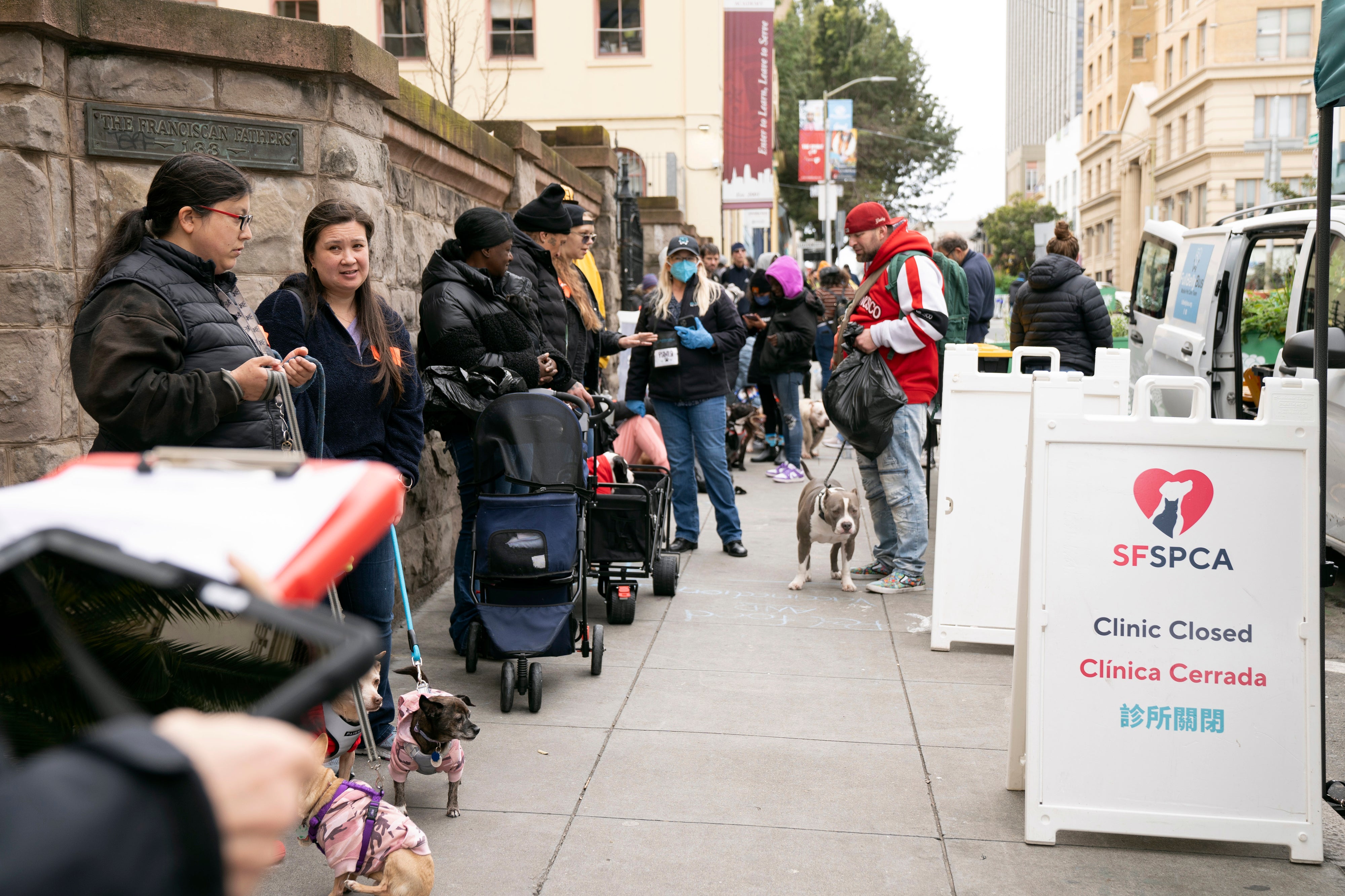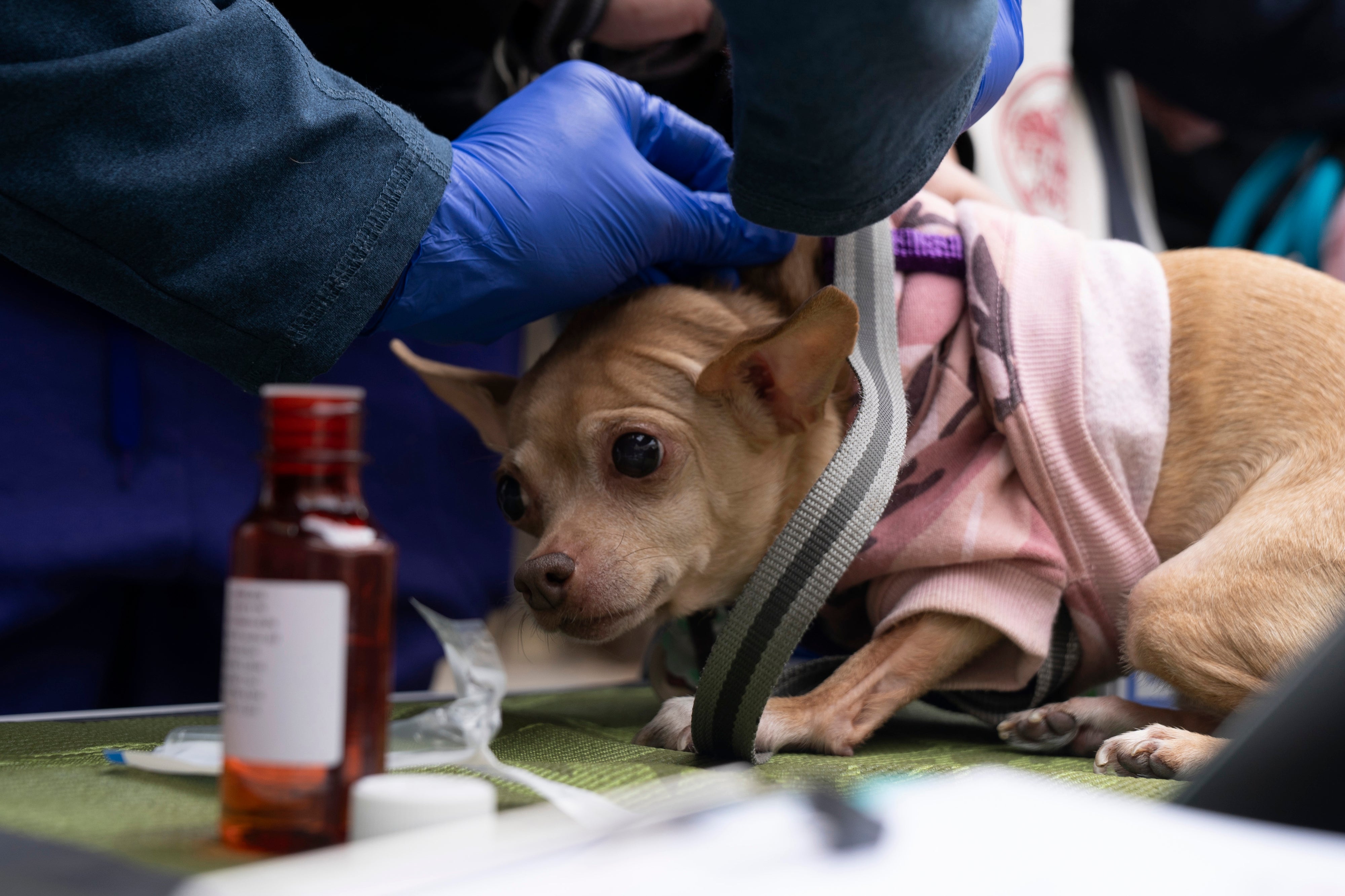
San Francisco dog owners queued with their canine companions on Monday for free vaccinations aimed at curbing a concerning outbreak of parvovirus, a highly contagious and potentially fatal disease for some dogs.
The free vaccination drive, a collaborative effort by the San Francisco SPCA, San Francisco Animal Care and Control, and other organizations, took place in the city’s Tenderloin neighborhood. The initiative provided free vaccinations against parvovirus and other canine illnesses.
Among those taking advantage of the free service was Andre Baylor, who brought his 10-year-old Chihuahua, Troy, for a shot. Baylor expressed concern about the virus’s potential lethality, stating he would do anything to protect his beloved pet.
“This was free, so I thought I’d take advantage,” Baylor explained. “He’s my best friend.”
Jessica Bogosian, San Francisco SPCA’s director of community medicine programs, said parvovirus attacks the stomach and intestines of dogs, and is spread by dog-to-dog contact and contact with contaminated feces and environments.

Common symptoms include vomiting and diarrhea, she said.
“Really the important thing to know about parvo is that it’s almost completely preventable through vaccinations,” Bogosian said.
The free vaccine clinics offered distemper/parvo vaccinations, flea control, deworming, and microchips, in addition to pet food and supplies. The SF SPCA anticipated serving up to 100 dogs on Monday and are putting on a second clinic.

A large uptick in parvovirus cases has been found in the San Francisco area in recent months, but the illness can be found in any community across the country, Bogosian said.
“I’ve been in the field for over 20 years, and I’ve seen it in urban areas, rural areas, just about anywhere,” she said.
State and federal agencies in 2022 investigated an outbreak of parvo that killed at least 30 mostly unvaccinated dogs in one Michigan county.
What is canine parvovirus?
Parvovirus (also known as canine parvovirus, CPV or parvo) is a very infectious disease that can be fatal for dogs.
According to the Blue Cross, the virus attacks cells in a dog’s intestines and stops them from being able to absorb nutrients. This means a dog will become weak and dehydrated.
Many dogs who are diagnosed with parvo will die, so vaccinating your dog is vital.






